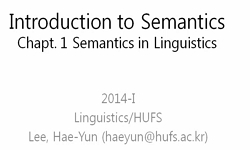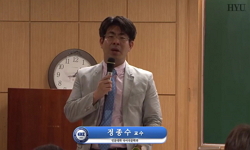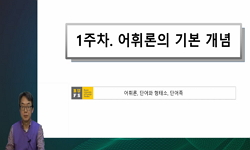The purpose of this study is to shed light on the meaning and value of interest (in Korean ‘Jae-mi’) in science education through literature analysis. Literature analyses were conducted on literature related to interest in various fields such as K...
http://chineseinput.net/에서 pinyin(병음)방식으로 중국어를 변환할 수 있습니다.
변환된 중국어를 복사하여 사용하시면 됩니다.
- 中文 을 입력하시려면 zhongwen을 입력하시고 space를누르시면됩니다.
- 北京 을 입력하시려면 beijing을 입력하시고 space를 누르시면 됩니다.

과학교육의 재미에 대한 재발견 -재미의 의미와 가치를 중심으로- = Rediscovering the Interest of Science Education: Focus on the Meaning and Value of Interest
한글로보기부가정보
다국어 초록 (Multilingual Abstract)
The purpose of this study is to shed light on the meaning and value of interest (in Korean ‘Jae-mi’) in science education through literature analysis. Literature analyses were conducted on literature related to interest in various fields such as Korean language, psychology, philosophy, and education. Specifically, this study discussed the meaning of interest, the characteristics of the context of experiencing interest, the educational value of interest in science education, and the direction of science education to realize the value of interest. First, it was found that interest is an experience of emotional activation that can be felt through interaction with a specific object, and it is an emotional experience caused by the complex combination of various psychological factors, which is oriented sense, relationship, self, and object. Second, to understand the context of experience of interest, we conducted a topic modeling analysis with 1173 research articles related to interest. As a result of the analysis, it was confirmed that the context of interest is closely related with playfulness. And we addressed that this kind of playfulness is also found in science. Third, the educational values of interest in science education were discussed. In science education, fun is not only an instrumental value to induce science learning behavior, it is also one of the universal experiences that learners feel lively in science teaching-learning, and driving force of individual students’ emotional development related to science. The students’ active attitude to feel interest lead to creative thinking and action. Finally, we argued that the interest that should be aimed in science education should be active interest and experienced at trial and error, not passive interest induced by external stimuli. And science education culture should be encouraged to respect those who enjoy science. In particular, this study discussed the importance of each student’s unique interest experience based on the philosophy of philosopher Deleuze (1976).
참고문헌 (Reference)
1 우연경, "흥미 연구의 현재와 향후 연구 방향" 한국교육심리학회 26 (26): 1179-1199, 2012
2 강창익, "활동 중심 STEAM 프로그램이 중학생들의 과학 학습 흥미도에 미치는 효과" 과학교육연구소 37 (37): 338-347, 2013
3 김성일, "한국 학생의 학업에 대한 흥미: 실태, 진단 및 처방" 한국문화및사회문제심리학회 14 : 187-221, 2008
4 서경혜, "학교 밖 교사학습공동체에 대한 사례연구" 한국교원교육학회 25 (25): 53-80, 2008
5 이금실, "하드 래더링(Hard Laddering)기법을 이용한 축제참가객의 가치체계에 관한 연구 - 충남보령머드축제 참가객을 대상으로 -" 대한관광경영학회 25 (25): 237-253, 2011
6 홍성연, "토픽 모델링 분석 기법을 활용한 대학의 학생 지원 연구 동향 분석" 학습자중심교과교육학회 17 (17): 21-48, 2017
7 이미혜, "축제매력성에 관한 연구" 대한경영학회 24 (24): 3599-3616, 2011
8 하동원, "축제 공간의 복잡적응계적 현상과 진화- 음악축제 참여자의 블로그를 대상으로 -" 관광연구소 25 (25): 45-62, 2013
9 윤준채, "초등 국어 교과서의 텍스트는 충분히 흥미로운가 - 정보 전달 텍스트에 대한 흥미와 흥미 요소 탐색 -" 한국어문교육연구소 (20) : 147-166, 2016
10 김지선, "중학교 내 자생적 교사학습공동체의 참여 요인 탐색" 한국교육행정학회 35 (35): 411-439, 2017
1 우연경, "흥미 연구의 현재와 향후 연구 방향" 한국교육심리학회 26 (26): 1179-1199, 2012
2 강창익, "활동 중심 STEAM 프로그램이 중학생들의 과학 학습 흥미도에 미치는 효과" 과학교육연구소 37 (37): 338-347, 2013
3 김성일, "한국 학생의 학업에 대한 흥미: 실태, 진단 및 처방" 한국문화및사회문제심리학회 14 : 187-221, 2008
4 서경혜, "학교 밖 교사학습공동체에 대한 사례연구" 한국교원교육학회 25 (25): 53-80, 2008
5 이금실, "하드 래더링(Hard Laddering)기법을 이용한 축제참가객의 가치체계에 관한 연구 - 충남보령머드축제 참가객을 대상으로 -" 대한관광경영학회 25 (25): 237-253, 2011
6 홍성연, "토픽 모델링 분석 기법을 활용한 대학의 학생 지원 연구 동향 분석" 학습자중심교과교육학회 17 (17): 21-48, 2017
7 이미혜, "축제매력성에 관한 연구" 대한경영학회 24 (24): 3599-3616, 2011
8 하동원, "축제 공간의 복잡적응계적 현상과 진화- 음악축제 참여자의 블로그를 대상으로 -" 관광연구소 25 (25): 45-62, 2013
9 윤준채, "초등 국어 교과서의 텍스트는 충분히 흥미로운가 - 정보 전달 텍스트에 대한 흥미와 흥미 요소 탐색 -" 한국어문교육연구소 (20) : 147-166, 2016
10 김지선, "중학교 내 자생적 교사학습공동체의 참여 요인 탐색" 한국교육행정학회 35 (35): 411-439, 2017
11 안경수, "정서교육에 대한 정당화" 한국교육철학회 (44) : 197-227, 2011
12 김경일, "전자책의 수용결정요인에 관한 연구 : 전자책 이용동기, 지각된 용이성과 유용성을 중심으로" 한국출판학회 40 (40): 5-28, 2014
13 손영미, "재미있으면 창의적으로 되는가? : 재미의 직·간접효과 검증" 여가문화학회 11 (11): 99-117, 2014
14 안길상, "재미유발(fun)광고가 브랜드 자산 형성에 미치는 영향" 한국전략마케팅학회 18 (18): 1-29, 2010
15 정은이, "재미와 몰입 경험이 대학 적응에 미치는 영향" 교육문제연구소 (44) : 71-99, 2012
16 조은예, "재미에 관한 아동의 암묵적 지식과 플로우와의 관계 분석" 한국사회및성격심리학회 22 (22): 115-132, 2008
17 이형철, "자유탐구 수업이 초등학생의 과학적 태도 및 과학탐구능력에 미치는 영향과 지도교사들의 자유탐구에 대한 인식 조사" 과학교육연구소 34 (34): 405-420, 2010
18 이용섭, "자유탐구 기법을 활용한 수업이 과학 창의적 문제해결력 및 과학적 탐구능력에 미치는 효과" 대한지구과학교육학회 4 (4): 116-125, 2011
19 남춘호, "일기자료 연구에서 토픽모델링 기법의 활용가능성 검토" 비교문화연구소 22 (22): 89-135, 2016
20 김동우, "육아 리얼리티 프로그램 시청동기가 이용자 만족과 재시청에 미치는 영향에 관한 연구 : <아빠! 어디가?>, <슈퍼맨이 돌아왔다>를 중심으로" 한국방송∙미디어공학회 19 (19): 925-933, 2014
21 이연승, "유아과학교육에서 메이커 교육(Maker Education)의 의미고찰" 한국어린이미디어학회 15 (15): 1-22, 2016
22 권창현, "유아 문화콘텐츠 제작을 위한 재미에 관한 연구" 한국정보디자인학회 13 (13): 29-44, 2010
23 심현표, "예비교사의 실험 수업에 대한 반성적 논의의 특징" 한국과학교육학회 33 (33): 911-931, 2013
24 권순일, "여가의 상업화와 사회적 의미 : 기업 주최 ‘달리기 이벤트’에 참여한 20대 여성의 경험" 여가문화학회 12 (12): 123-148, 2014
25 권지은, "앱북(App Book)으로의 매체 전환을 위한 퍼놀로지(Funology)에 관한 연구; ‘무, 바, 라라라!(Moo, Baa, La La La!)’ 앱북(App Book)을 중심으로" 한국만화애니메이션학회 (30) : 221-243, 2013
26 김은주, "아동 전자그림책 앱의 퍼놀로지(Funology)에 기반한 인지요소 상호작용" 한국디자인트렌드학회 (48) : 181-194, 2015
27 한은경, "스마트폰 이용자의 모바일광고 이용동기와 만족에 관한 연구: 이용과 충족이론을 중심으로" 사이버커뮤니케이션학회 28 (28): 165-201, 2011
28 이태성, "사회과 교육에서 감정 개념의 명료화- ‘정동 이론(Affect Theory)’을 중심으로 -" 한국사회교과교육학회 24 (24): 23-38, 2017
29 박상천, "문화콘텐츠의 ‘즐거움’와 ‘재미’에 관한 연구" 한국언어문화학회 (60) : 139-163, 2016
30 김옥련, "문화적응 스트레스와 SNS이용에 관한 연구: 재한 중국인 유학생을 중심으로" 사회과학연구소 24 (24): 377-401, 2013
31 민재원, "문학 교육과정에서 ‘즐거움’의 구체화를 위한 예비적 고찰" 한국국어교육학회 (98) : 573-607, 2014
32 홍정하, "무작위 표본에 대한 코퍼스 언어학적 연구" 언어정보연구소 (18) : 137-162, 2014
33 최승현, "들뢰즈의 배움론이 교사교육에 주는 시사점" 한국교육철학학회 39 (39): 193-209, 2017
34 김재춘, "들뢰즈 철학에서 ‘배움’과 ‘가르침’의 의미와 관계 탐색" 한국교육학회 50 (50): 125-149, 2012
35 양은주, "듀이의 흥미 개념과 초등교사의 실천적 과제" 한국교육사상학회 24 (24): 105-127, 2010
36 이태윤, "도덕수업에서 재미에 관한 고찰" 한국초등도덕교육학회 (55) : 165-187, 2017
37 나현신, "뉴밀레니엄시대 패션에 나타난 ‘페이크 펀(fake fun)'디자인" 한국디자인트렌드학회 (34) : 47-54, 2012
38 하주일, "과학인형극 프로그램의 재미요소 분석과 재미전략" 한국전시산업융합연구원 18 : 711-721, 2014
39 박기주, "과학기술 헌법조항의 재검토 및 개정방향" 헌법재판연구원 3 (3): 295-318, 2016
40 김진국, "과학 우수아의 과학관에 대한 이미지와 기대 전시 내용- 광주지역 학생을 중심으로 -" 한국과학교육학회 33 (33): 1431-1449, 2013
41 김권숙, "과학 기반 STEAM 프로그램이 초등과학 영재 학생들의 창의적 문제해결력과 과학적 태도에 미치는 영향" 한국초등과학교육학회 31 (31): 216-226, 2012
42 염은열, "고전문학 ‘학습(學習)’의 경험과 ‘재미’의 문제에 대한 논의" 한국고전문학교육학회 (28) : 37-63, 2014
43 신재홍, "고전 소설의 재미 찾기" 한국고전문학교육학회 (26) : 31-59, 2013
44 김성룡, "고전 문학의 재미와 고전 문학 교육의 의미" 한국고전문학교육학회 (28) : 5-35, 2014
45 박찬일, "게임의 장르별 재미 요소" 한국콘텐츠학회 7 (7): 20-29, 2007
46 이용욱, "게임스토리텔링의 재미요소와 기제분석에 대한 기초 연구-온라인게임을 중심으로-" 인문콘텐츠학회 (18) : 7-29, 2010
47 함기훈, "게임 커뮤니케이션에서 놀이분류에 따른 쾌감요소에 관한 연구 -온라인게임을 중심으로-" 한국기초조형학회 16 (16): 777-788, 2015
48 이승훈, "게임 소프트웨어 재미요소의 체계적인 분류와 탐색방법" 한국멀티미디어학회 13 (13): 1506-1513, 2010
49 김은영, "감정동사 유의어의 의미 연구-‘즐겁다’, ‘무섭다’의 유의어를 중심으로-" 한국어의미학회 14 : 121-147, 2004
50 박상민, "‘자연을 통한 과학학습’을 위한 Nature-Study 교육방법 고찰" 대한화학회 59 (59): 45-53, 2015
51 Anderhag, P., "Why do secondary school students lose their interest in science? Or does it never emerge? A possible and overlooked explanation" 100 (100): 791-813, 2016
52 Armstrong, S. L., "What most concepts might not to be" 13 : 263-308, 1983
53 Mohr, J. W., "Topic models : What they are and why they matter" 41 (41): 546-770, 2013
54 Jakobson, B., "The roles of aesthetic experience in elementary school science" 38 (38): 45-65, 2008
55 Fabre, A., "The life of Jean Henri Fabre: the entomologist, 1823–1910" Dodd 1921
56 Krapp, A., "The handbook of self-determination research" University of Rochester Press 405-427, 2002
57 MOE, "The comprehensive national science education plan(2016-2020)" Ministry of Education 2016
58 Lazarus, R. S., "Stress and Emotion : A New Synthesis" Springer Publishing Company 2006
59 Ryan, R. M., "Self-determination theory and facilitation of intrinsic motivation, social development, and well-being" 55 (55): 68-78, 2000
60 Raymo, C., "Science as play" 57 (57): 279-289, 1973
61 Laszlo, P., "Science as play" 92 (92): 398-, 2004
62 Glynn, S. M., "Science Motivation Questionnaire II : Validation with Science Majors and Nonscience Majors" 48 (48): 1159-1176, 2011
63 Hadzigeorgiou, Y., "Romanticism and romantic science : Their contribution to science education" 23 : 1963-2006, 2014
64 Krapp, A., "Research on interest in science : Theories, methods, and findings" 33 : 27-50, 2011
65 Deleuze, G., "Proustetles signes" Presses Universitaires de France 1976
66 Fredrickson, B. L., "Positive emotions broaden the scope of attention and thought-action repertoires" 19 (19): 313-332, 2005
67 Julia F. Christensen, "Pleasure junkies all around! Why it matters and why ‘the arts’ might be the answer: a biopsychological perspective" The Royal Society 284 (284): 20162837-, 2017
68 Bateson, P., "Play, Playfulness, Creativity and Innovation" Cambridge University Press 2013
69 OECD, "PISA 2015 Results (Volume I): Excellence and Equity in Education, PISA" OECD Publishing 2016
70 정준환, "PBL에 나타난 학습의 재미요소 추출과 상호관계에 관한 연구" 한국교육방법학회 25 (25): 147-170, 2013
71 Kim, S., "Nature of fun : What is fun?" Kyungsung University Publisher 2013
72 Hidi, S., "Motivating the academicaaly unmotivated : A critical issue for the 21st century" 70 : 151-179, 2006
73 Yoo, H. R., "Minority Kids’ Life in Nursery Schools : A Phenomenological Understanding" 2 (2): 139-170, 1999
74 Koo, S. J., "Lifelong learning development education direction through the case of the elder education of the science museum" 11 (11): 1-9, 2017
75 Jarrett. O. S., "Lessons on the role of fun/playfulness from a geology undergraduate summer research program" 58 (58): 110-120, 2010
76 Bell, P., "Learning science in informal environments" National Academy Press 2009
77 Packer, J., "Learning for fun : The unique contribution of educational leisure experiences" 49 (49): 329-344, 2006
78 Silvertown, J., "Key Topics in Conservation Biology 2" John Wiley &Sons 2013
79 Hidi, S., "Interest and its contribution as a mental resource for learning" 60 : 549-571, 1990
80 Silvia, P. J., "Interest and interests : The psychology of constructive capriciousness" 5 : 270-290, 2001
81 Dewey, J., "Interest and Effort in Education" Houghton Mifflin Co 1913
82 Dilettante, "In Oxford English Dictionary"
83 Jack, B. M., "Igniting and sustaining interest among students who have grown cold toward science" 98 (98): 792-814, 2014
84 Huizinga, J., "Homo Ludens: A Study of the Play Element in Culture" Beacon Press Books 1938
85 Csikszentmihalyi, M., "Finding Flow" Brockman 1997
86 Siliva, P. J., "Exploring the Psychology of Interest" Oxford University Press 2006
87 Kokubun, K., "Ethics of Leisure and Boredom" Asahi-Press 2011
88 Scherer, K R., "Emotions are emergent processes : They require a dynamic computational architecture" 364 : 3459-3474, 2009
89 Arnold, M. B., "Emotion and Personality : Vol. 1. psychological aspects" Columbia University Press 1960
90 Lazarus, R. S., "Emotion and Adaptation" Oxford University Press 1991
91 Adorno, T. W., "Dialectic of Enlightenment : Cultural Memory in the Present" Stanford University Press 1972
92 김윤기, "Classification of Public Perceptions toward Smog Risks on Twitter Using Topic Modeling" 한국국토정보공사 47 (47): 53-79, 2017
93 Dickinson, J. L., "Citizen science as an ecological research tool: Challenges and benefits" 41 : 149-172, 2010
94 Wittgenstein, L., "Cheolhagjeog tamgu" Chacksaesang 2006
95 Fortus, D., "Attending to affect" 51 (51): 821-835, 2014
96 Lemke, J. L., "Articulating communities : Sociocultural perspectives on science education" 38 : 296-316, 2001
97 Dewey, J., "Art as experience" min-ton, Balch & Co 1934
98 Girod, M., "Appreciating the beauty of science ideas : Teaching for aesthetic understanding" 87 : 574-587, 2003
99 Scherer, K. R., "Appraisal processes in emotion: theory, methods, research" Oxford University Press 92-120, 2001
100 Girod, M., "An aesthetic(Deweyan)perspective on science learning : Case studies of three fourth graders" 102 (102): 199-224, 2002
101 Swarat, S., "Activity Matters : Understanding Student Interest in School Science" 49 (49): 515-537, 2012
102 Pekrun, R., "Academic emotions in students’ self-regulated learning and achievement : A program of quantitative and qualitative research" 37 (37): 91-106, 2002
103 Irzik, G., "A family resemblance approach to the nature of science for science education" 20 : 591-607, 2011
104 Battisti, F. D., "A decade of research in statistics : a topic model approach" 103 : 413-433, 2015
105 Park, S., "A Study for Shaping and Strengthening the Scientific Mind-Set among the Korean Public" Science and Technology Policy Institute 2016
106 MOE(Ministry of education), "2015 revised national curriculum of science"
107 최병길, "'문학-미술-과학' 융합교육 프로그램의 개발 및 적용 사례 연구(I)" 한국전시산업융합연구원 19 : 679-698, 2015
동일학술지(권/호) 다른 논문
-
- 한국과학교육학회
- 손미현 ( Mihyun Son )
- 2018
- KCI등재
-
- 한국과학교육학회
- 조은진 ( Eunjin Cho )
- 2018
- KCI등재
-
의사결정 유형 및 성격특성에 따른 예비생물교사들의 SSI(Socio-Scientific Issues) 토론 담화 차이 분석
- 한국과학교육학회
- 최고은 ( Go-eun Choi )
- 2018
- KCI등재
-
중등 예비 과학교사들의 과학자 이미지 및 과학 관련 직업에 대한 인식
- 한국과학교육학회
- 송영욱 ( Youngwook Song )
- 2018
- KCI등재
분석정보
인용정보 인용지수 설명보기
학술지 이력
| 연월일 | 이력구분 | 이력상세 | 등재구분 |
|---|---|---|---|
| 2027 | 평가예정 | 재인증평가 신청대상 (재인증) | |
| 2021-01-01 | 평가 | 등재학술지 유지 (재인증) |  |
| 2018-03-29 | 학술지명변경 | 외국어명 : Journal of the Korean Association for in Science Education -> Journal of the Korean Association for Science Education |  |
| 2018-01-01 | 평가 | 등재학술지 유지 (등재유지) |  |
| 2015-01-01 | 평가 | 등재학술지 유지 (등재유지) |  |
| 2011-01-01 | 평가 | 등재학술지 유지 (등재유지) |  |
| 2009-01-01 | 평가 | 등재학술지 유지 (등재유지) |  |
| 2007-04-26 | 학술지명변경 | 외국어명 : Journal of the Korean Association for Research in Science Education -> Journal of the Korean Association for in Science Education |  |
| 2007-04-03 | 학회명변경 | 영문명 : The Korean Association For Research In Science Education -> The Korean Association for Science Education |  |
| 2007-01-01 | 평가 | 등재학술지 유지 (등재유지) |  |
| 2005-01-01 | 평가 | 등재학술지 유지 (등재유지) |  |
| 2002-01-01 | 평가 | 등재학술지 선정 (등재후보2차) |  |
| 1999-07-01 | 평가 | 등재후보학술지 선정 (신규평가) |  |
학술지 인용정보
| 기준연도 | WOS-KCI 통합IF(2년) | KCIF(2년) | KCIF(3년) |
|---|---|---|---|
| 2016 | 1.87 | 1.87 | 1.69 |
| KCIF(4년) | KCIF(5년) | 중심성지수(3년) | 즉시성지수 |
| 1.66 | 1.54 | 2.133 | 0.47 |




 ScienceON
ScienceON KISS
KISS







